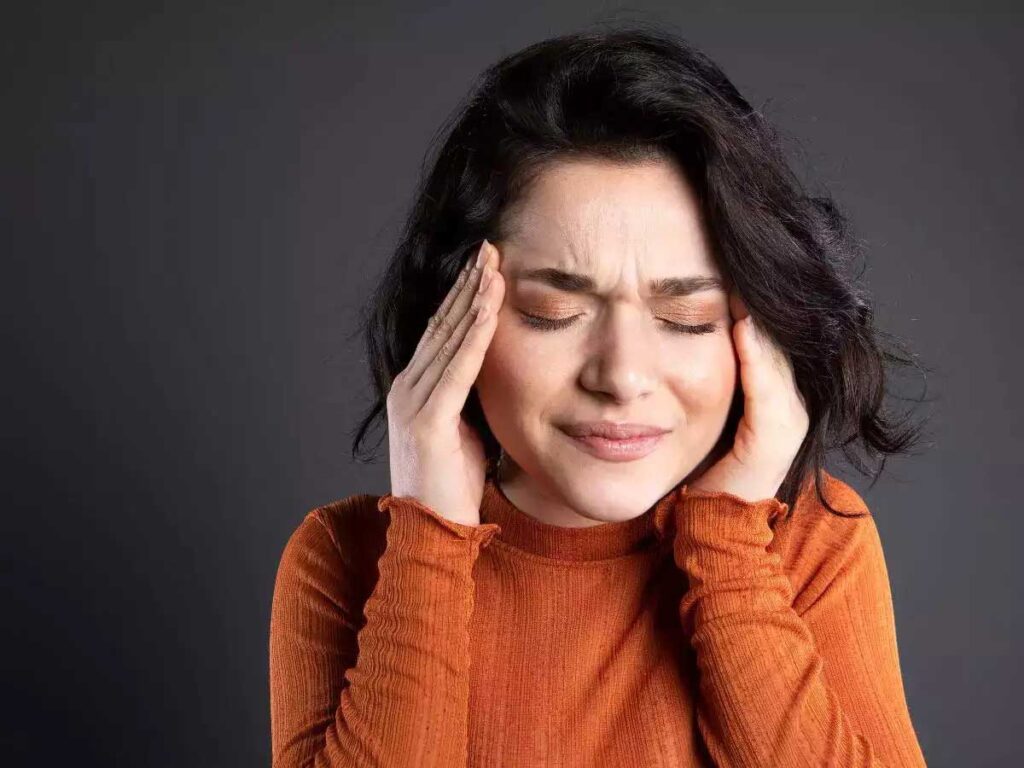The relationship between the weather and migraines is not a myth. The change in air pressure can cause migraines for some people whenever the weather changes from bright to stormy or the opposite, or when there is a significant spike or fall in humidity.
The migraine brain is vulnerable to changes, including dietary changes, stress levels, sleep patterns, and yes, even weather variations. Although it doesn’t always follow that every time the weather changes, you could be at risk if it’s a substantial change.

Do changes in the weather bring on migraines?
Strangely, some scientific investigations have failed to conclusively correlate weather patterns to migraine.
It can be challenging to demonstrate experimentally that a specific weather pattern frequently leads to migraine headaches. A migraine trigger is something that momentarily increases a migraine sufferer’s likelihood of having an attack. Even though weather changes are one of a person’s migraine triggers, many of that person’s migraine attacks may still be brought on by other causes.
However, unless the weather change is extremely drastic, a single trigger, such as a particular weather change, may not always be able to initiate a migraine attack on its own. A migraine episode may only be “caused” by the weather change if it can be combined with another trigger, such as a meal high in monosodium glutamate or a glass of red wine. A person may only get a migraine attack if they are already susceptible to them due to weariness, stress, or lack of sleep, not if the weather changes. As a result, it could be challenging to discern a connection between a particular weather pattern and the start of migraine symptoms.
Last but not least, not all migraineurs are sensitive to the weather. Among those who are, some may be more sensitive to one type of weather pattern than another. In addition, the trigger may be followed by a wait of several hours before the migraine episode occurs.
How many migraine sufferers are also sensitive to the weather?
The percentage of migraineurs who are actually sensitive to the weather is unknown. Well over one-third of migraine sufferers believe that at least some of their attacks are brought on by specific weather patterns. Almost 10% of these migraine patients believed that at least two-thirds of their attacks were caused by weather patterns. Each person has a different sensitivity to a particular type of weather pattern
Surviving the turbulence
What should you do if you frequently get migraines as no one can stay indoors till the weather is ideal? One way to lessen the effect weather can have on you is to stay away from other triggers. According to the study, stacking triggers increase the likelihood that something may cause a migraine. The weather might not give you a migraine if you maintain a normal sleep schedule, eat on time, and manage your stress levels.
A few lifestyle changes may also be beneficial. Cook advises avoiding outdoor activities on really hot days, drinking plenty of water, and wearing a wide-brimmed hat to screen the sun. This is also the time to research medications that can prevent migraines from occurring in the future. The weather might not be as much of a concern if you’re receiving preventive care.

The brain-rain connection
The reasons why the weather can trigger an episode are still poorly understood, just like many other elements of migraines. One explanation, according to research, the pressure variations cause the brain to become more excitable, activating the migraine circuit. Changes in atmospheric pressure can make the migraine generator, which is located in the brain stem, become extremely overactive, which creates a constellation of symptoms. Also, according to a study, changes in the weather may affect the sinuses and activate the same neurons that ultimately result in migraines.
Medication to treat migraine
The treatments used to treat migraines brought on by the weather are the same as those used to treat other migraine headaches, with triptans (such as sumatriptan and others) and non-steroidal anti-inflammatory drugs (NSAIDs) being the most crucial ones. Ask your doctor if one of the daily preventive drugs (beta-blockers, amitriptyline, topiramate, and others) could be beneficial for you if you frequently experience migraine attacks, whether or not they are caused by the weather.
Contact Texas Specialty Clinics if you are unable to manage your migraine when there is a change in weather conditions. Contact us at 469-225-0666 or FAX us at (888) 900-4530.

